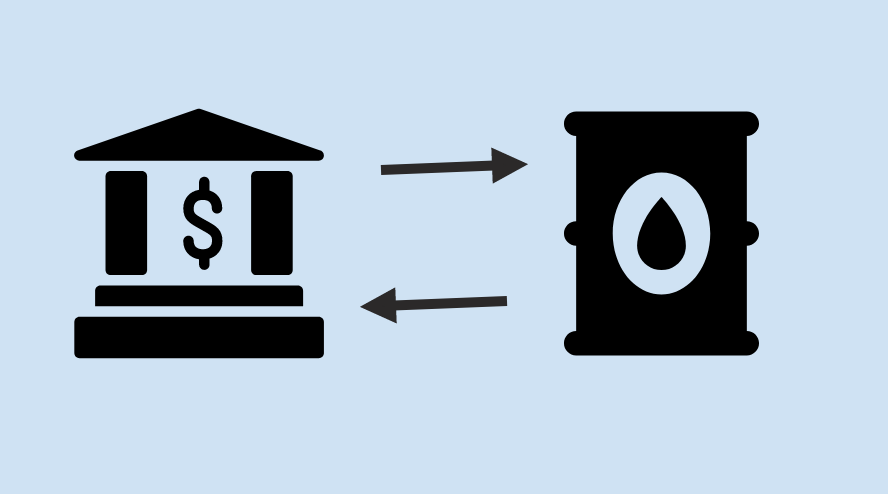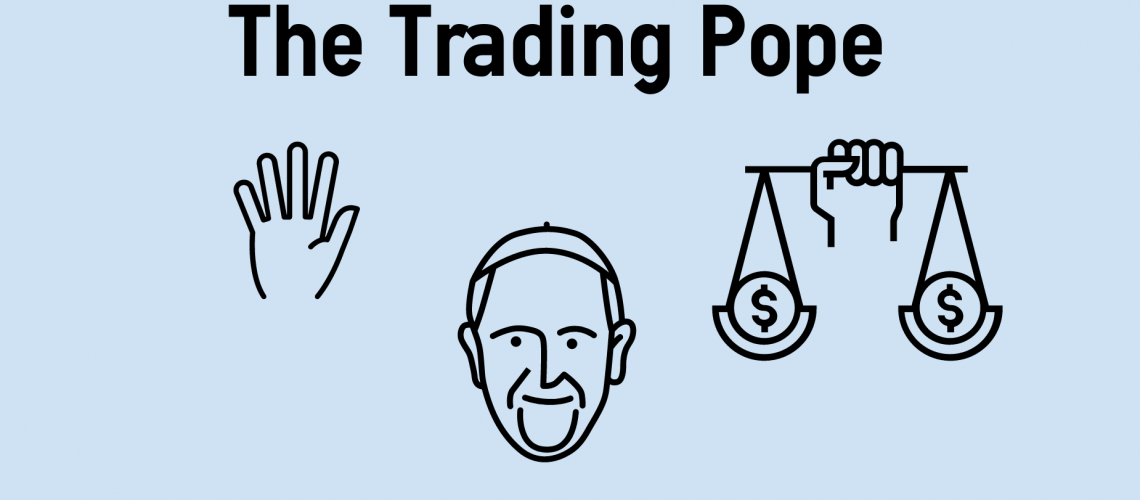Christian Weyer: his name is known only to specialists. Yet it is he who has helped to make Geneva a world trading capital. Still active at age 84, he agreed to speak for the first time.
Christian Weyer removes his glasses and mobilizes his intact memory. To tell his story, he must rejuvenate nearly forty years. A world. At the end of the 1960s, the signature of a Turkish bank is not worth much, the Bombay Merchants are famous for arguing endlessly, China does not exist on commercial cards.
Christian Weyer recently worked at the Bank of Paris and the Netherlands in Geneva. Seeking new customers in 1971, he rediscovers the interest of an instrument fallen into disuse: the letter of credit. This ensures the seller the payment of his cargo and the buyer the receipt of his goods in good time and in good condition (more about LC here)
Weyer has the intuition of his life. Rather than granting credits on the basis of the financial soundness of the client, as most banks do at the time, he decided to reactivate this old instrument and to pledge the transaction on the control by the bank of the value of the exchanged goods. The pawnshop adapted to the twentieth century!
Christian Weyer never told his story. It evokes Cendrars as well as the race for millions. Because if all was built over telexes and letters of credit, in the offices of the center of Geneva, the orders he gave there waved a whole theater of tough traders, rusty cargos and inspired bluffers.

The credit tool revealed its tremendous utility during the oil crisis in 1973, when the “majors” lose control of the production chain to the benefit of producing countries and their national companies. They needed intermediaries to sell their goods to distributors. And these new operators needed bank financing.
Geneva did not see this activity flourish by chance. The region benefited from the emigration of wealthy Egyptian cotton farmers and Sudanese hunted by the nationalizations of Nasser in 1956. They spotted on the shores of Lake Geneva the benefits of neutrality and political stability, a welcoming taxation, real estate accessible to foreigners, a functioning telephone network and an intercontinental airport. In their luggage, they bring a long transactional expertise, which owes as much to psychology as to traditional banking knowledge.
“I learned a lot from them,” says Christian Weyer. Of their ability to resilience include: “They could go broke one day and bounce the next day. They were a hundred cubits above the European traders, mediocre and daring. They brought the imagination, a vision. We do not measure what Switzerland owes to this fabulous generation. “
Thanks to them, Christian Weyer learned the golden rule of his job: to know his client. Know your customer. “I always said that you have to sleep with the client,” he says. According to one of his former collaborators, Christian Weyer knows as nobody “to immediately detect the balance of power and power relations and to distinguish without weakness the essentials of the accessory, the passions of the facts. And like a big beast, he benefits from it a lot “.
From his Geneva office, Christian Weyer ran hundreds of cargo ships around the world; he recruited collaborators whom he trained to his methods. “I called them my soldiers of fortune. They needed to have a university education and speak languages. So one of them who mastered Portuguese went prospecting in Brazil, a German who grew up in Shanghai flew to North Korea. “These men formed the generation of Weyer boys, who consolidated its vision and anchored in Geneva companies brewing billions.
The price of oil flamed in the 70s, Paribas gains market share. Christian Weyer saw empires forming in the wake of his activities. “One of our first customers was next to the bank. He was dealing with coal and we started to finance his team. Today is Vitol, one of the world’s biggest oil trading companies. “
The Soviets, too, were busy. Christian Weyer considers them “clever and dynamic people.” One day, he received the call of one of the leaders of SNE, the state agency responsible for oil exports. One of its branches in Western Europe, Nafta (B), had lost millions by speculating in forward exchange transactions. If he could not find anything to plug the hole, his head would fall.

“Our arrangement was to provide them with a line of credit up to the desired amount. We then operated via an independent German operator who was getting cargo at friend prices. The loss was filled and our interlocutor escaped the camps of Siberia. Our privileged position vis-à-vis the Soviets was acquired. And she was never challenged again. “
The strength of Christian Weyer’s system was also based mainly on the documentary credits department, the machine room of the bank. He made it a point of honor to react in record time to issue usual letters of credit. But he also knew how to design more and more sophisticated instruments, adapted to complex situations. These were written in such a way that the authorizing officers could not fail to pay while protecting the bank. “In India or Algeria, for example, you were facing difficult people. It was necessary to know how to succeed with them, and to prevent a boat from being declared in distress, that is to say, stuck in a harbor. It’s all that drives one of his closest associates to notice that “Christian Weyer was an atypical banker, neither haughty nor stooge.”
His first clients were “adventurers and even some of them, speculative fugitives,” he says. Those who knew, at the beginning of the oil crisis, sniffing the price explosion, force the door of ministries in China or Nigeria, bluff the authorities, get impossible contracts. To master this new market, it was necessary to know the raw materials, the shipping, but also the national cultures and the reliability of the operators, for the most part unknown.
This visionary craft seemed far away today. The world of documentary credit has lost its romanticism. The “push-button” operations replaced the income-generating uncertainties and risk-taking with the scent of conquest. The commission rate has been cut in half and the sector is of interest to a small number of banking players, put off by reputation risk in the event of a spill.
Christian Weyer is sorry for it. He does not believe that the job is dead: “As long as there is trade, there will be mistrust, and therefore the need for a bank to secure transactions. But wealth management provides a more secure income for banks that are turning away from documentary credit. BNP-Paribas understood this, which has retained its leading role. Swiss banks have never made this activity a strategic priority. “
The future, however, seems to him full of promise: “More than in oil, opportunities are now in minerals and metals. It’s sad that so many bankers do not see the fantastic opportunities there. “
The adventure is over, yes, but Christian Weyer did not detach. With two long-time friends, Olivier Lerolle and Nicolaus Marshall, he is active in a think tank where ideas and information about the oil industry are exchanged. He remains subscribed to his tennis games and continues to ride in an old Peugeot. He did not get rich: “Money, fundamentally, does not count for him, says Olivier Lerolle, but he loves to play to create. He was never afraid. “
Christian Weyer is reluctant to talk about a private life he has always kept out of his career. The Geneva traders know him all and recognize him as the “pope of trading”. He is flattered by it, but immediately begins again: “I was there at the right moment.”
Here is the original article in French (10 years old paper!)
https://www.letemps.ch/opinions/pape-negoce
Hey if you aren’t, subscribe to the mailing list and get 5 others actionable pieces of advice on how to break into the physical commodity trading => just click here !
Damien W.

